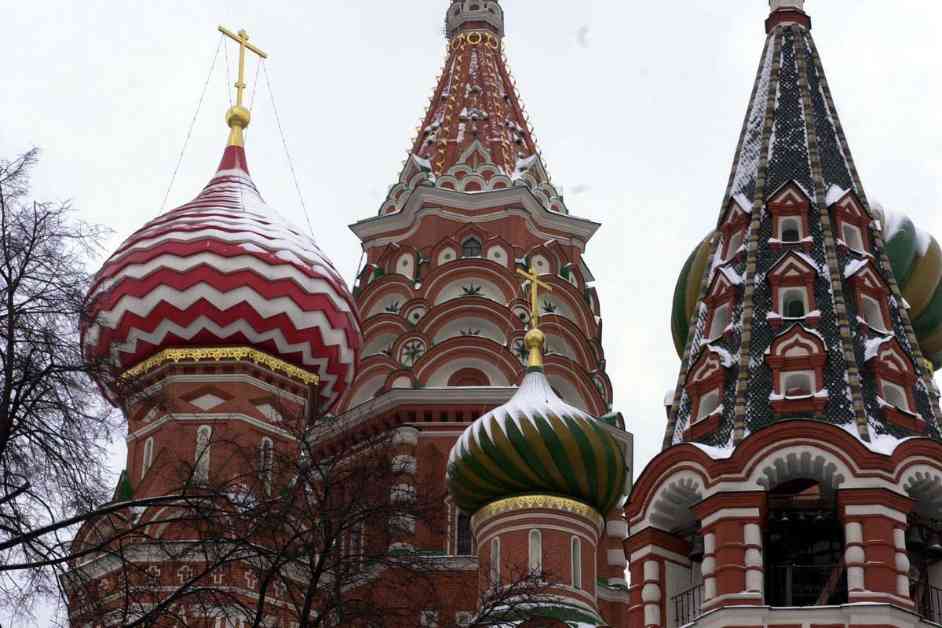Accusations of ‘Covert’ Russian State Media Interference by UK and US
Britain and the United States have joined forces in accusing Russian state media outlet RT of engaging in “covert” activities worldwide on behalf of the Kremlin, with the aim of undermining collective security. The Foreign Office in the UK has labeled RT as a “mouthpiece for Russian disinformation” that has evolved into a more harmful organization, resulting in its removal from broadcast platforms in the country.
US Imposes Sanctions on RT
In a coordinated move, US Secretary of State Antony Blinken announced further sanctions on RT, highlighting its role as a key component of Moscow’s war machine with cyber operational capabilities. The US has long accused RT of interference in its democratic processes, particularly during the lead-up to the November election. However, Blinken’s recent statement reveals that similar activities have been tracked in other countries, including Argentina, France, and Moldova.
Covert Influence and Information Operations
The Foreign Office released a statement affirming that US intelligence has uncovered evidence of RT’s engagement in information operations and covert influence campaigns worldwide. These activities are seen as threats to the democratic foundations of other nations, utilizing intelligence operations and shadowy networks to incite political violence and sow discord. The statement suggests that RT, working in direct collaboration with the Kremlin, has sought to manipulate democratic processes in Moldova and disseminate damaging falsehoods to stoke tensions.
According to the Foreign Office, RT’s senior leadership is fully aware that an entity within the outlet, with connections to Russian intelligence, has been strategically placed by the Russian government. This revelation underscores the extent of the Russian state’s duplicity in weaponizing the media to propagate lies, jeopardize global security, and advance its illegal incursion into Ukraine.
The UK’s ongoing efforts to counter such threats include previous sanctions imposed on RT’s parent company, TV Novosti, in a bid to curtail its influence. The Foreign Office emphasizes that Russia’s manipulation of RT serves as a clear illustration of the state’s deceptive tactics in spreading misinformation and distorting the truth, ultimately failing in their attempts to deceive the international community.
Global Ramifications of RT’s Activities
The implications of RT’s covert activities extend far beyond the borders of the UK and the US, with evidence pointing to its involvement in various countries across the globe. The channel’s role as a tool for Russian propaganda and disinformation poses a significant threat to the stability and security of nations where it operates. The insidious nature of RT’s influence campaigns serves to undermine the integrity of democratic processes and sow division among populations.
In Argentina, RT has been identified as a key player in spreading misinformation and manipulating public opinion. The channel’s dissemination of false narratives and inflammatory content has raised concerns about its impact on the country’s political landscape and social cohesion. Similarly, in France, RT’s efforts to shape public perception and influence decision-making processes have been met with scrutiny and condemnation.
Moldova, a nation currently preparing for upcoming elections, is also a target of RT’s covert influence operations. The channel’s attempts to meddle in the country’s democratic processes and incite unrest have raised alarms among officials and citizens alike. Moldovan authorities are taking proactive measures to counteract RT’s disinformation campaigns and safeguard the integrity of their electoral system.
Combating Russian State Media Interference
The coordinated actions taken by the UK and US against RT signal a united front in combating Russian state media interference and safeguarding democratic values. By imposing sanctions and exposing the covert activities of RT, both countries are sending a clear message that such manipulative tactics will not be tolerated. The efforts to restrict RT’s influence and hold its leadership accountable for their actions demonstrate a commitment to upholding transparency, truth, and the rule of law.
Moving forward, it is imperative for governments and international organizations to remain vigilant against the threat posed by Russian state media outlets like RT. By strengthening information-sharing mechanisms, enhancing cybersecurity measures, and promoting media literacy, countries can effectively counter the spread of disinformation and protect their democratic institutions from external interference.
In conclusion, the accusations of “covert” Russian state media interference by the UK and US serve as a stark reminder of the ongoing challenges posed by propaganda and misinformation in the digital age. By exposing and confronting the deceptive tactics employed by outlets like RT, nations can uphold the principles of democracy, defend against threats to collective security, and preserve the integrity of the global information landscape.












